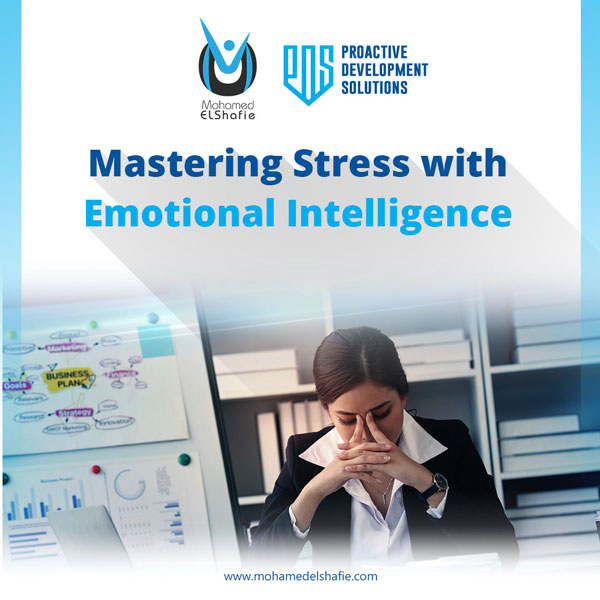Overview
In today’s fast-paced and demanding world, stress has become a constant companion for many individuals. From pressing work deadlines to personal responsibilities and societal expectations, managing stress is no longer optional—it’s essential for mental and physical well-being.
While many approaches exist, Emotional Intelligence (EI) has gained significant traction as a powerful framework for understanding stress, regulating emotions, and building inner resilience. This program equips participants with the tools to develop self-awareness, apply mindfulness, strengthen communication, and manage conflict in a high-pressure work environment.
Learning Objectives
By the end of this program, participants will be able to:
-
Define stress, its types, and common symptoms
-
Recall the core components of Emotional Intelligence
-
Explain the relationship between stress and emotions
-
Identify sources of stress in personal and professional life
-
Recognize physical, emotional, and cognitive signs of stress in self and others
-
Discover personal stress triggers through introspection and discussion
-
Compare types of stress and their emotional consequences
-
Use mindfulness tools to manage stress in real-time
-
Assess which emotional regulation strategies are most effective
-
Evaluate personal patterns of self-awareness and self-regulation
-
Understand social awareness, empathy, and relationship management
-
Describe workplace communication barriers and solutions
-
Demonstrate active listening and empathy in real scenarios
-
Develop a personal action plan to improve relationship skills using EI
-
Define resilience, optimism, and healthy workplace culture
-
Explain how motivation contributes to stress management and emotional resilience
-
Apply EI-based techniques for effective conflict resolution
Program Outline
Unit 01: Introduction to Stress and Emotional Intelligence
-
What is Stress? Types and Symptoms
-
Sources of Stress in Work and Life
-
Recognizing physical, emotional, and cognitive stress indicators
-
Discovering personal triggers through reflection
-
The Stress–Emotion Link
-
Introduction to Emotional Intelligence
Unit 02: Self-Awareness & Self-Management
-
Identifying stress triggers
-
Understanding types of emotions
-
Recognizing emotional and physical responses
-
Johari Window framework
-
The Fight–Flight–Freeze response explained
-
Amygdala hijack and de-escalation strategies
-
Mindfulness practices and tools
Unit 03: Social Awareness and Communication Building
-
Defining Social Awareness
-
Constructive disagreement and Think Win-Win
-
Communication skills and overcoming barriers
-
Active listening and real empathy
-
Circle of Influence vs. Circle of Concern
-
Cognitive bias in relationships
-
Organizational culture and its impact on employee dynamics
Unit 04: Relationship Management and Workplace Resilience
-
Defining Relationship Management
-
Understanding the Stress Curve
-
Myths and facts about resilience
-
Core elements of personal and team resilience
-
Building support systems
-
Motivation and optimism as resilience drivers
-
Creating a psychologically safe workplace
-
Conflict resolution strategies using Emotional Intelligence
Methods Used
-
Ice-breaker activities and emotional games
-
Case studies and real-life examples
-
Group discussions and live feedback
-
Personal reflection exercises
-
Guided mindfulness and brainstorming sessions
